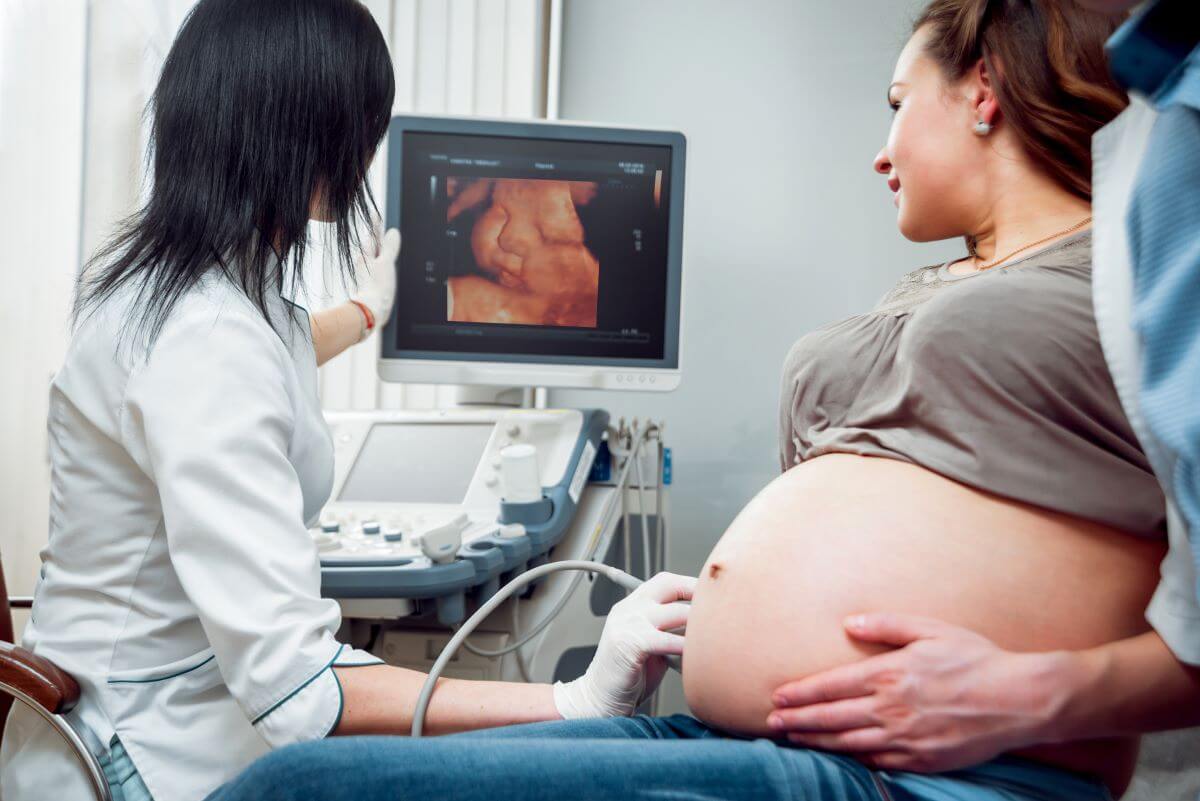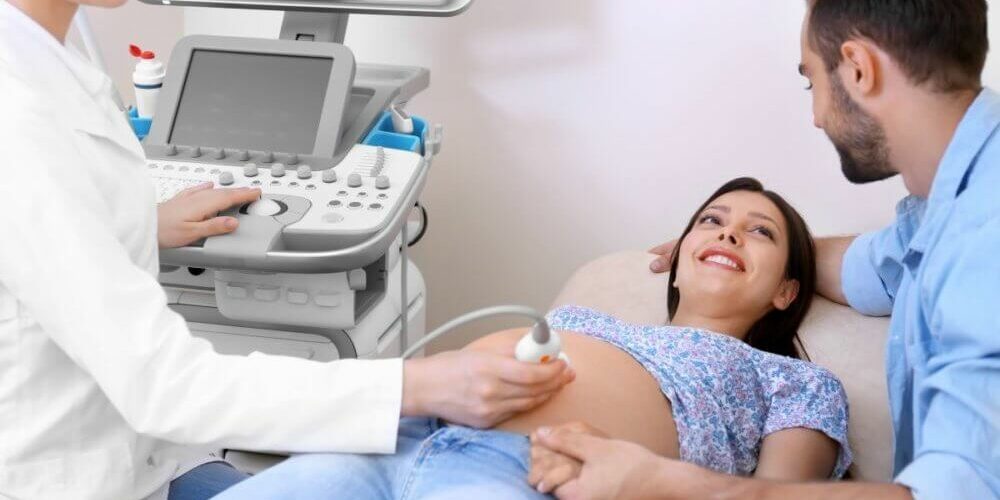Why our research is important for families?
 We are a research group focused on Fetal Medicine. Our main goal over the last 15 years has been to understand, identify and prevent brain injury during fetal life.
We are a research group focused on Fetal Medicine. Our main goal over the last 15 years has been to understand, identify and prevent brain injury during fetal life.
One in ten children will suffer neurodevelopmental delays and learning disabilities. In about two thirds of these, brain injury occurred before birth. Early detection and intervention during pregnancy or the first years after birth offers a unique opportunity for correcting or improving the consequences of brain injury.
Prenatal life is a critical moment that strongly determines future health. The brain is the most clear example of this. Even small changes in the delicate environment of the mother’s womb can substantially deviate the normal development of the brain. In many instances, brain injury is subtle and it goes unnoticed during pregnancy and first years of life. However, these periods offer a critical “window of opportunity” for detecting and preventing neurodevelopmental problems that will appear later in life, when interventions may be much less effective.
Our pioneer research aims at reducing the impact of fetal problems in neurodevelopment. We have contributed substantially to current knowledge on fetal brain injury. We showed that even mild adverse exposures can have very important effects in the fetal brain that will persist until childhood. For instance, thanks to the support of Cerebra we demonstrated how intrauterine growth restriction, a common prenatal problem traditionally considered “benign”, is strongly associated with impaired neurodevelopment in the child. We also developed new diagnostic tools to detect abnormal brain development in the fetus and newborn.
As a natural evolution of our research, we are now testing in clinical trials new interventions to protect the fetal brain. Some studies evaluate how public health measures in large populations can improve brain development, while others are focused on reducing the consequences of brain injury. We are convinced that our research can change the quality of life of thousands of children and their families, from the mildest to the most severe forms of brain injury.
We strongly believe in the future of the so-called “P4 medicine” (predictive, preventive, personalised and participatory). Thus, all our current and future research projects are focused in developing new and innovative strategies for the prediction of brain risk, through personalised tools with a better information and participation of the families, which then lead to effective preventive interventions. Fetal life is a paradigm of P4 medicine, a unique opportunity to protect the quality of life of our future children, and of our society as a whole.
Progress from January 2014 to December 2017
- We have improved the understanding of how common pregnancy complications (including fetal growth restriction, prematurity and exposure to tobacco or alcohol) are associated with fetal brain development. This has allowed to better understand why some babies are at higher risk of developing brain problems, and identify targets for treatment.
- We have developed indicators (biomarkers) of brain injury, which can be detected in imaging techniques from the earliest stages of life. These biomarkers are based on techniques such as ultrasound or magnetic resonance imaging.
- We started clinical trials aiming at preventing fetal brain problems: (1) evaluating the best timing for delivery in high risk pregnancies (RATIO37) and (2) improving neurodevelopment by acting on maternal diet and stress conditions (IMPACT). New clinical trials will test treatment that showed impressive results in protecting brain development experimentally.
- We have raised awareness on the importance of fetal life:
- Among healthcare providers through scientific publications, presentations in international congresses, our website, courses, and new medical guidelines.
- Among the society through our social website http://inatal.org, a mobile app (translated to English soon) to promote a healthier pregnancy and several social actions in collaboration with Cerebra.
Some key indicators of progress are:
- We have recruited more than 1,200 mothers and fetuses for various research projects.
- We have published 151 international research papers related with the Cerebra projects.
- We have delivered 163 invited lectures and 37 chaired speeches, aside from 97 oral communications and 102 posters, at international conferences and seminars.
- The funding requested initially included the equivalent amount to fund three PhD studentships from 2014-2019, and we have used that funding to partially support and attract a total of 20 PhD students that joined the Erasmus Mundus European Joint Doctorate in Fetal and Perinatal Medicine, coordinated by our group.
- We have developed partnerships with 11 international and 12 national research groups.
- Most international clinical guidelines now recognize the importance of “late-onset” growth restriction. The condition was regarded a benign form of IUGR until a few years ago.
- On the top of Cerebra’s funding of £478,122 from 2014 to 2017, we have raised an extra £870,400 by December 2017 (four years) to support the Cerebra research project.
Longer term impact of our research for families
Our research team’s main goal is the prevention of brain conditions from the earliest stages of life to achieve a longer term impact for families. We started working towards this aim with the first research Cerebra programme (2008-2013) where we focused on understanding and development of diagnostic tools. In the second research programme (2014-2019) we have started testing therapies that emerged from the earlier research programme.
Over future years, we will finalise ongoing large studies and start new ones to generate advances that will be applicable to real practice. These tools span from public health approaches to more sophisticated treatments. For instance, the IMPACT trial will generate new tools for empowering parents to apply lifestyle measures with an enormous impact on the quality of life of the future child. In a new trial to start in 2018, we will test prenatal treatments that could substantially reduce brain injury associated with intrauterine growth restriction.
Likewise, among our future research projects, we will expand our advances to other fetal diseases leading to neurological damage, including prematurity, malformations such as spina bifida and cardiac defects, exposure to alcohol/tobacco and environmental exposures.
We believe the impact of our research is important for families. Biomarkers, preventive strategies and personalised treatments will be effective in other serious problems and even genetic diseases. We are now only discovering how brain development may change among individuals with the same “disease name”. For instance, in a new project we are identifying markers of intellectual development prognosis among children with spina bifida, and this will be critical to personalise their therapy. All brain problems, no matter how severe they are, will strongly benefit from a better prediction and prevention, an optimal environment and early and personalised stimulation. All these strategies must definitely start before birth and continue the first months of life.










Good day,
Is it possible to get your guidelines in in English.
I have been struggling for while to lay hands on your guide lines but i only find it in Spanish